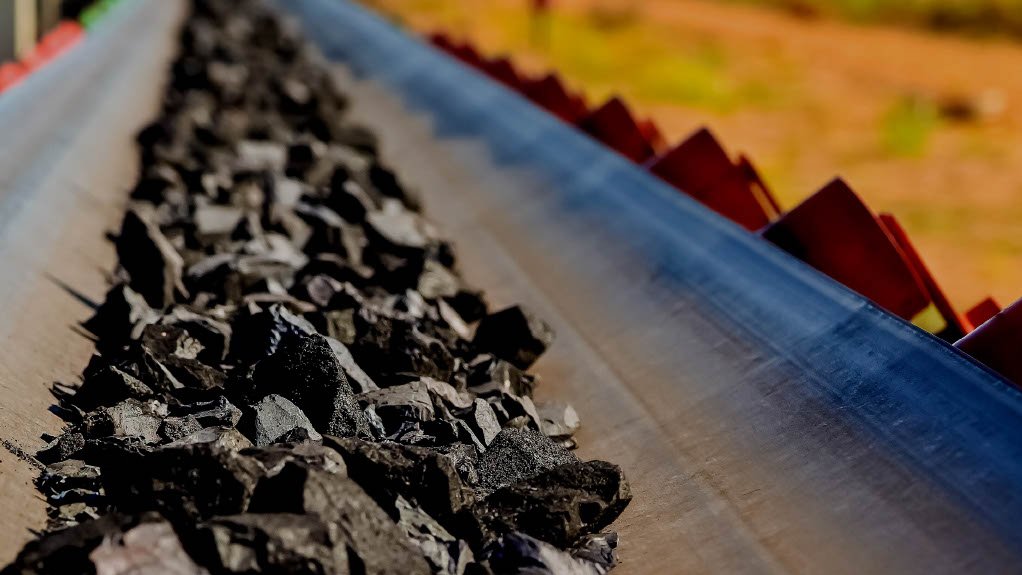Practical JET implementation


CUTTING EMISSIONS Countries that are heavily reliant on coal for baseload power should look to implement clean coal technologies in their carbon emission strategies
Negative pressures – such as lower coal prices, loadshedding and poor logistics performance by State-owned freight company Transnet – have impacted on coal miners’ approach to the just energy transition (JET), resulting in varied responses across the sector, explains African mining specialist service provider Ukwazi business development director Spencer Eckstein.
Given the impacts of these pressures on coal miners’ revenue and profitability, some producers have adopted a “wait and see” approach, while others, typically the larger coal producers, are looking to reinvent themselves as energy companies.
A few are engaging with government and public entities to try to address issues relating to climate change and net-zero emissions, while seeking clarity on government’s position particularly in regard to using coal for longer periods to satisfy baseload requirements and a slower integration of renewables.
Some of these producers are considering avenues such as carbon storage or carbon trading strategies, while underground gasification has already been considered and regarded as unfeasible in a South African context.
He notes that, while the JET implementation policy exists, “it is important that it is not too prescriptive” in the short term. What is needed is flexibility and an alignment of interests and incentives between government, labour and coal producers, as companies which have varying resources and challenges, determine how to interpret and implement the policy according to their own context, while keeping the broader industry and national requirements in mind.
Eckstein highlights that the coal sector comprises numerous companies, which vary significantly in terms of culture, size and level of complexity. Consequently, approaches and responses to the JET will differ, and should ideally meet mines’ commitment to emissions reduction and environmental stewardship, using measures that are practicable, both from an economic and an operational perspective.
In this regard, he says it is imperative that coal companies understand their current base line and future environmental impacts and engage with relevant stakeholders regarding inclusive forward planning and preparation for JET implementation, bearing in mind that the key driver for the JET is both the reduced demand for coal production but also the combustion of coal in certain power stations, which will ultimately be decommissioned.
Moreover, a more measured approach to implementation can ensure that companies avoid costly missteps.
Eckstein points out that companies in the platinum group metals sector are looking to replace diesel equipment fleets with hydrogen-powered equipment, adding that coal miners are likely to follow suit, once hydrogen proves a viable alternative for the local industry. Such an undertaking will likely significantly reduce the coal sector’s overall emissions.
Coupled with improved water management, the coal sector’s overall environmental, social and governance (ESG) performance is likely to improve significantly.
Clean Coal Technology
Eckstein notes that while there are many clean coal technologies (CCTs) spanning a range of technologies for power plants to use to reduce sulphur dioxide and nitrogen oxide emissions, the implementation of these technologies by State-owned power utility Eskom would significantly drive up the price of electricity, owing to the cost.
CCTs, in general, focus on reducing emissions following the combustion of coal, so while adopting these technologies would have a beneficial ESG impact and outcome for power plants and energy suppliers, the exorbitant cost of implementing these technologies and/or retrofitting existing plants, means that Eskom is not planning on rolling out CCT projects any time soon.
Eckstein notes that CCTs are not the only means of reducing emissions, citing the European Union, which has been making “notable strides towards accelerating the implementation of renewable-energy sources, such as wind, solar and hydrogen, including those for baseload power plants.
Moreover, stricter regulations and more consistent enforcement will also move the needle on emissions reduction, with Eckstein noting that certain government departments are more active in enforcing environmental standards and are being stricter with granting environmental authorisations.
Nonetheless, he says that countries that are heavily reliant on coal for baseload power should look to implement CCTs in their carbon emission strategies; however, in a South African context it is more viable to try to ramp up renewables-based generation.
Unfortunately, as Eckstein notes, South Africa’s adoption of renewables has been hampered by legislative red tape and transmission grid-related constraints.
Ukwazi has worked with most of the major coal producers in South Africa – with up to 40% of its practice servicing the coal industry – mainly focusing on technical studies and optimisations to address cost pressures and environmental issues. The company is looking at further consolidating its position in the sector.
Comments
Press Office
Announcements
What's On
Subscribe to improve your user experience...
Option 1 (equivalent of R125 a month):
Receive a weekly copy of Creamer Media's Engineering News & Mining Weekly magazine
(print copy for those in South Africa and e-magazine for those outside of South Africa)
Receive daily email newsletters
Access to full search results
Access archive of magazine back copies
Access to Projects in Progress
Access to ONE Research Report of your choice in PDF format
Option 2 (equivalent of R375 a month):
All benefits from Option 1
PLUS
Access to Creamer Media's Research Channel Africa for ALL Research Reports, in PDF format, on various industrial and mining sectors
including Electricity; Water; Energy Transition; Hydrogen; Roads, Rail and Ports; Coal; Gold; Platinum; Battery Metals; etc.
Already a subscriber?
Forgotten your password?
Receive weekly copy of Creamer Media's Engineering News & Mining Weekly magazine (print copy for those in South Africa and e-magazine for those outside of South Africa)
➕
Recieve daily email newsletters
➕
Access to full search results
➕
Access archive of magazine back copies
➕
Access to Projects in Progress
➕
Access to ONE Research Report of your choice in PDF format
RESEARCH CHANNEL AFRICA
R4500 (equivalent of R375 a month)
SUBSCRIBEAll benefits from Option 1
➕
Access to Creamer Media's Research Channel Africa for ALL Research Reports on various industrial and mining sectors, in PDF format, including on:
Electricity
➕
Water
➕
Energy Transition
➕
Hydrogen
➕
Roads, Rail and Ports
➕
Coal
➕
Gold
➕
Platinum
➕
Battery Metals
➕
etc.
Receive all benefits from Option 1 or Option 2 delivered to numerous people at your company
➕
Multiple User names and Passwords for simultaneous log-ins
➕
Intranet integration access to all in your organisation



















